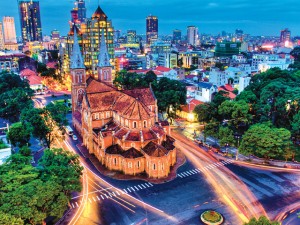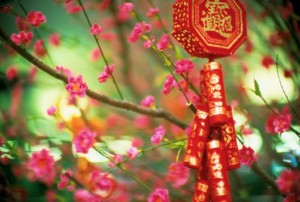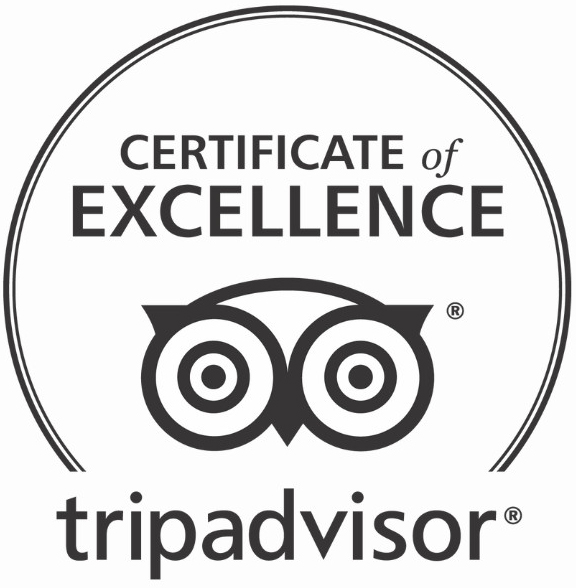Vietnam travel tips
CLIMATE & TIMES TO VISIT
 You can travel any time of year and each season has its own special appeal. The most popular time for travel is between November to April. You should book well in advance if you wish to travel at this time. Temperatures are generally lower, especially in the north, where it can be quite cool in the winter months (December to February). Halong Bay is often covered in mist, which reduces visibility but adds to the atmosphere. In the south of the country, days are usually warm and clear, but be prepared for some instability and possible flooding in Central Vietnam during the months of October and November.
You can travel any time of year and each season has its own special appeal. The most popular time for travel is between November to April. You should book well in advance if you wish to travel at this time. Temperatures are generally lower, especially in the north, where it can be quite cool in the winter months (December to February). Halong Bay is often covered in mist, which reduces visibility but adds to the atmosphere. In the south of the country, days are usually warm and clear, but be prepared for some instability and possible flooding in Central Vietnam during the months of October and November.
During summer, which is also the monsoon season (May to November) you can expect days to be warm and humid with refreshing afternoon showers. Travel is rarely affected by the rain and everything is lush and green at this time. Skies over Halong Bay are usually clear and blue.
WHAT TO EXPECT
Vietnam Travel: What to Expect
 Tourism has come a long way in the last 10 years. The industry is still evolving but these days you will find that services and facilities are similar to what you would find in developed countries. Travelling in more remote areas could involve bumpy roads, noisy trains, and overnight stays in clean but basic accommodation.
Tourism has come a long way in the last 10 years. The industry is still evolving but these days you will find that services and facilities are similar to what you would find in developed countries. Travelling in more remote areas could involve bumpy roads, noisy trains, and overnight stays in clean but basic accommodation.
Over 2,000 km separates the capital, Hanoi, from Saigon (Ho Chi Minh City), so most holidays to Vietnam will involve some combination of plane, bus (or private car), and train travel. Domestic flights between major centres are readily available and an efficient way to travel long distances. Travelling by train on the Reunification Express is a unique and rewarding experience.
EVENTS
 Banks, public offices and some tourist sites will be closed on the holidays listed below. As major holidays such as Tet (Vietnamese New Year) are set according to the lunar calendar, dates change every year. Please check with our Asia specialists for details.
Banks, public offices and some tourist sites will be closed on the holidays listed below. As major holidays such as Tet (Vietnamese New Year) are set according to the lunar calendar, dates change every year. Please check with our Asia specialists for details.
- 1 January – New Year’s Day.
- January/February is Tet Festival
- March/April – the anniversary of Hung Kings (Vietnam’s one-time imperial rulers).
- 30 April is Independence Day, commemorating the reunification of Vietnam (1976).
- 1 May is Labour Day.
- 2 September is National Day.
- 31 December is New Year’s Eve. It is celebrated in Vietnam with festive meals and fireworks.
THINGS TO REMEMBER

DO’S
- Greetings are no different to western countries, there are no cultural formalities that as a foreginer you would be expected to know or practise.
- Vietnamese dress conservatively. Despite the heat, it’s best not to show off too much skin. If you do, especially girls, you’ll only draw stares from the locals.
- Dress well when visiting pagodas. No shorts or tatty beer t-shirts. Shoes are fine, and rarely will you have to remove them. If unsure, just follow what the locals do.
- Drink plenty of bottled water, especially when walking around sightseeing. No need to carry huge bottles around with you, a vendor is never far away and no doubt they will find you before you find them.
- Keep your cash, credit cards, airline tickets and other valuables in a safe place.
- Travel with recommended tour agencies. Even if you plan to buy tickets when in country, research your journey a little first on the Internet. A good resource is Lonely Planet’s Thorn Tree Forum, where fellow tourists discuss travel. This way you avoid unreliable tour agencies and badly run hotels.
DON’TS
- Wear a lot of jewellery or take a bag with you. Violent crime is highly unusual in Vietnam, but petty crime is more apparent. If you have a bag, or tout a digital camera around your neck, you are a potential target.
- When taking a ride by motorbike taxi (xe om) make sure your bag, if any, is not on display or easy to grab. Bag snatches, although still rare, are probably the most likely crime a tourist would encounter, and it raises the probability immensely if you are tailing a camera or a laptop in the wind.
- Don’t wear singlets, shorts, skirts or dresses, or revealing clothes to temples or pagodas.
- Physical displays of affection between lovers in public are frowned upon. That’s why you may come across couples holding hands but not hugging or kissing.
- Losing your temper in Vietnam means a loss of face. Keep a cool head and remain polite, you’ll have a greater chance of getting what you want.
- Remember, this is Vietnam, a devloping country, and things don’t quite work as you are maybe used to. Don’t be paranoid about your safety, just be aware of your surroundings.

